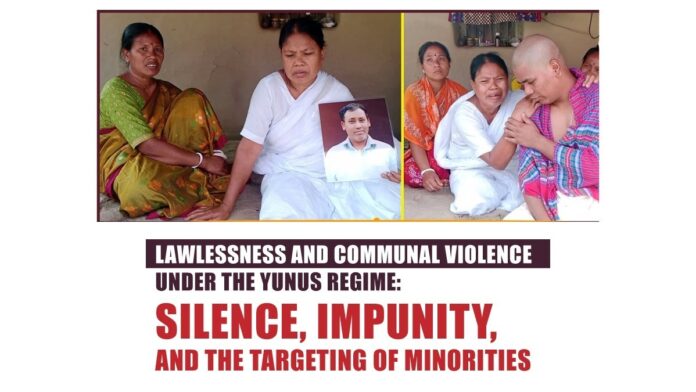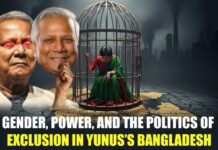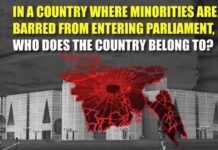
Grief still hangs heavy over the home of Bhavesh Chandra Roy the vice-president of the Puja Udjapon Parishad in Dinajpur’s Biral Upazila. His wife remains shattered, inconsolable, after losing her husband in what appears to be a cold-blooded, premeditated killing. What initially appeared to be a mysterious death is now beginning to reveal a darker, more chilling truth—one that exposes the dangerous climate of communal violence and impunity festering under Dr. Yunus’s administration.
According to Bhavesh’s family and local residents who are only now beginning to speak out after days of silence, the Hindu community leader was allegedly abducted and murdered by two men from the same village—Atiq and Ratan —over a financial dispute. Eyewitnesses say the perpetrators took him away on a motorcycle, and he never returned alive.
But the most damning indictment of the law enforcement agencies comes in their utter inaction. Despite the community’s outcry and the grieving family’s allegations, police have offered the same tired excuse: No formal complaint has been received. In a country where fear stifles voices and justice is a privilege of the powerful, this is not just an evasion—it is complicity.
This is not an isolated incident. It is part of a disturbing pattern of rising attacks on minorities, silencing of dissenters, and state-sanctioned impunity for those aligned with the regime. Under Dr. Yunus’s rule, communal harmony has fractured and those who have long lived in peaceful coexistence are now being pushed to the margins— bullied, threatened, and in Bhavesh’s case, murdered.
The fact that Bhavesh Chandra Roy was an organizer of Hindu religious celebrations adds another layer of urgency. His killing is not just a personal tragedy—it is a calculated act of intimidation aimed at silencing Bangladesh’s minority voices, at a time when the regime is increasingly leaning on Islamist hardliners for political survival.
This silence from the police, this fear among witnesses, this unchecked violence—this is what state failure looks like. And it raises the most harrowing question of all: If community leaders like Bhavesh can be killed in broad daylight without consequence, who in Bangladesh is truly safe anymore?
The world must not look away. The time has come to demand accountability from a regime that is rapidly dragging the country into darkness, division, and chaos.



